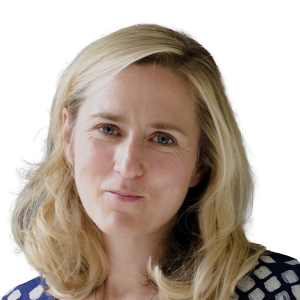All in the tidy mind

Roula Khalaf, Editor of the FT, selects her favourite stories in this weekly newsletter.
Only three months late, my thoughts turned to spring cleaning. My spur was this: the book I had started to read only moments before had disappeared under mounting piles of stuff – thank-you letters (one, shockingly, in Biro), greetings cards from a year’s worth of birthdays, mementos of old Hollywood, school reports, nine drafts of my last novel, odd plimsolls, sachets of lily and jasmine face mask, four copies of Poets in their Youth by Eileen Simpson, theatre programmes, cello rosin, nail varnish remover, waxy orange blossom flowers, lyrics from Gigi, seven recipe books that only feature puddings, a box containing a silver candle snuffer I did not recognise. It didn’t help that the book in question was called The Life-Changing Magic of Tidying.
“That book will change your life,” a friend had told me.
“But I don’t want it to change,” I lied.
I ordered a second copy but, while waiting for it to arrive, I decided to begin an enormous sort through/throw-out to prove to the book I did not need it. It would not find me wanting. It could not stand in judgment. Whatever it instructed, I could respond with a barrage of ticks …Ha!
I have never in my life imagined the contents of a book instead of reading it but there must have been something about the book that alarmed me somehow. I assumed it would advocate a wholesale getting rid of things but how would that challenge the very delicately balanced economy of loss that already exists within me? Yet I had read the first few pages before its disappearance with mounting excitement. There was a way of tidying, it asserted, that was so superior you only really had to do it once. What’s more, with your home tidied in the way it would prescribe, everything about your life would feel more manageable, lighter, freer, full of potential, and open to the possibility of positive change. There would be the freedom, on a grand scale, to live. And living, everyone knows, is the thing. What did Henry James write in The Ambassadors? “Live all you can; it’s a mistake not to. It doesn’t so much matter what you do in particular so long as you have your life. If you haven’t had that what have you had?” (Did the Master follow his own advice? Ah, that is a whole other column.)
But how can you welcome change if you specialise in being brave in the face of adversity? If happiness stems from difficulties overcome, do we remove those difficulties at our peril?
My mother once told me the only thing she really learnt at school was how to put up with things. “Would you have preferred to have been taught how to kick up a stink?” I asked. “You are funny,” she said.
And so I began my mammoth tidy.
…
The difficult thing about sorting through several thousand pieces of paper is having to decide again and again what the definition of precious is. The first thing I found was a charming letter from 2001 written by John Bayley, who, as well as being my favourite literary critic of the 20th century, was famous for keeping a house so messy he and his wife (Iris Murdoch) once sat down to eat a pie that a student had brought them. Between putting the pie on the table and attempting to eat it, the pie disappeared. The funny thing was they never found it. I sometimes think of that pie in its current state, as forlorn as anything imagined by Keats.
Bayley’s letter must have been in response to one of mine saying I had given birth. He wrote saying that the baby sounded “almost as good as no baby at all”. Hmmm. I put the letter on the keep pile but ditched the nine drafts of the novel. Archive shmarchive. I wanted to live! There was the space now to think in this room, which isn’t quite the same as living but nobody’s perfect.
From here I proceeded to rationalise the board games. Fifty games jammed in a cupboard, so that the cupboard itself is a game of risk and dare – coax one out and 43 may fall at your feet, scattering counters, toy money, dice and cards in all directions, bruising your shins. Eighteen board games clearly displayed on their sides and easy to reach in a drawer felt like three times as many.
The penny began to drop. If everything is easy to see, a small amount can feel like plenty. Why had I not realised this before? The kitchen cupboards were next. Upstairs, the soft toys quaked in anticipation.
The second copy of the book arrived the next day. Like an excellent doctor who magically clears your symptoms between the making of the phone call and the appointment day itself (so you can cancel), it had done its job. Patting it fondly, I put it in a safe place. I wish I had not read it years ago …
Susie Boyt on summer dressing
Comments